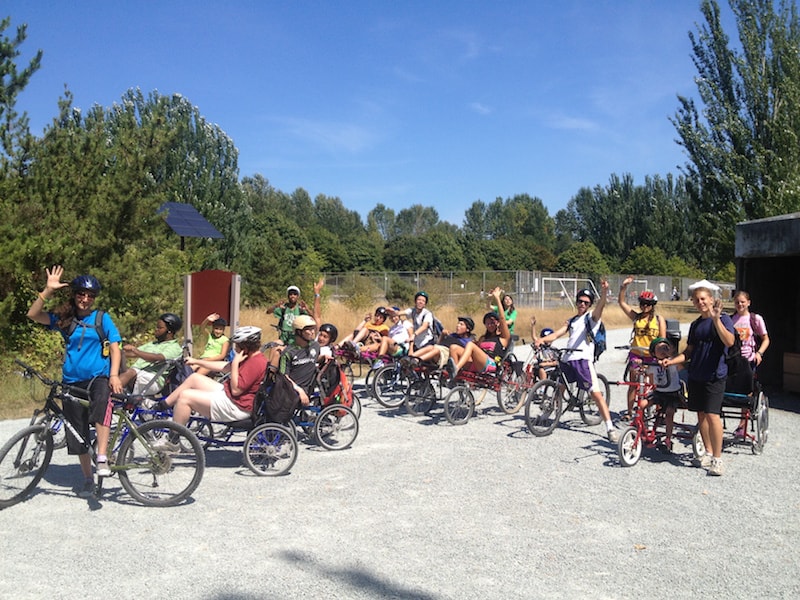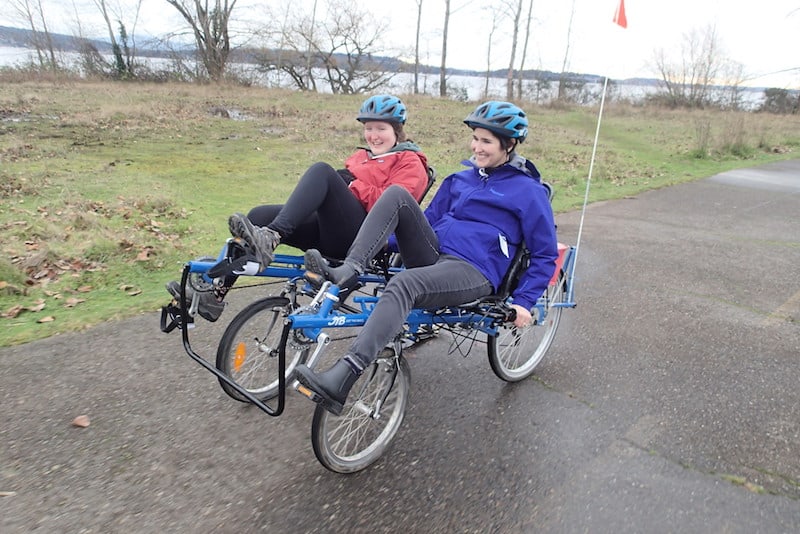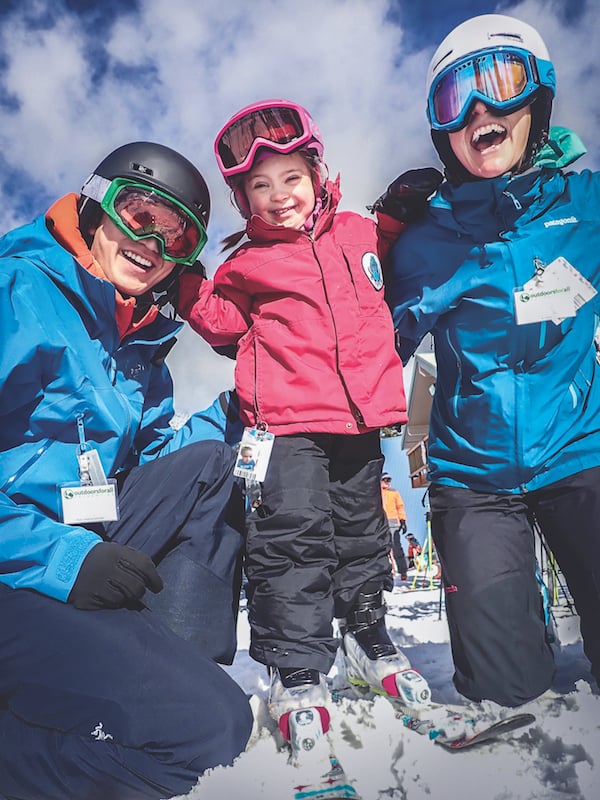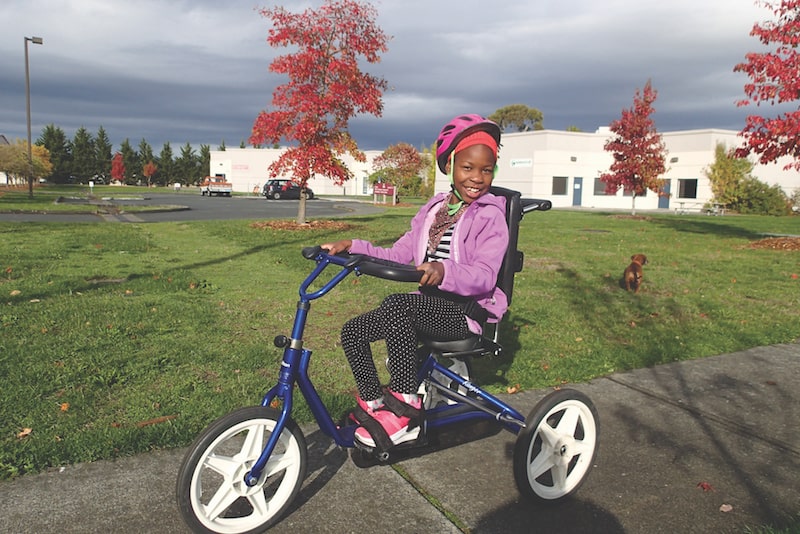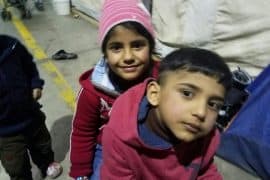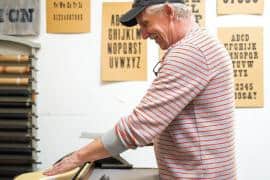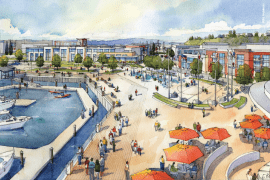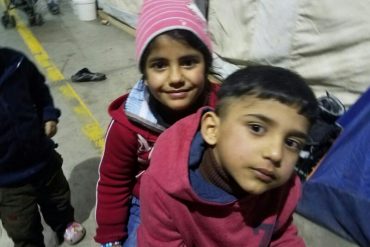The Outdoors For All Foundation is making recreation possible for everyone
written by Sheila G. Miller
For many, living in the Pacific Northwest means nights in tents, days on trails and everywhere in between—from rivers to oceans to mountains to deserts. Thanks to the Outdoors for All Foundation, kids and adults with disabilities living in Washington can experience the great outdoors just like everyone else.
Outdoors for All was founded in 1978 as Ski for All Foundation with fifteen kids with disabilities taking ski lessons at The Summit at Snoqualmie. Today, more than 2,400 people with disabilities are able to get outdoors through the program, thanks in part to the more than 700 volunteers who work with the program. “Kids with disabilities wanted to take ski lessons, like their siblings, and there was nothing set up for them,” Outdoors for All executive director Ed Bronsdon said. “It started as a ski program, and we kept focusing on quality instruction, and we kept having more kids and adults coming forward and saying, ‘Now that it’s not snowing, we want to do other things.’ And it just kind of grew.” The nonprofit offers snowboarding and skiing, as well as snowshoeing and cross-country skiing in the winter. Come summer, add cycling, hiking, yoga, kayaking rock climbing and other options like day camps and camping to the list. The focus, Bronsdon said, is activities that are outdoors and muscle-powered. “If REI sells the equipment for it, we probably do it,” he said. “We are making sure that the outdoors is accessible to everyone.”
Roughly 60 percent of participants are kids, and the program is open to all level of abilities. Participants may have intellectual disabilities, autism, or physical injuries from military service. “It’s about people, and us accommodating the disability.”Although Outdoors for All is based in Seattle, volunteers and full-time employees take the program on the road through collaboration with hospitals and schools around the state. “We will pack a trailer full of adaptive equipment—bikes or ski gear or kayaks or what have you—and drive to you,” he said.“We typically partner and collaborate with a school in the community or a medical center or hospital, sometimes a military base.”
There’s a real ethic in the Pacific Northwest that we want to get out and get active. There are community connections that take place with getting outside. There is self-esteem, that ‘fall down and get back up’ thing. Those kinds of connections are pretty powerful.
—Ed Bronsdon, Outdoors for All executive director
Now that the program has grown, Bronsdon is working on ways to improve. First, after losing a private funder for its programs for those injured in the line of duty, Outdoors for All is working to restore and then expand those programs. It’s also expanding camp programs and its collaboration around the state in an effort to eliminate waiting lists and bring more people to the programs.
At a recent Rotary Club meeting, Bronsdon was reminded of something during the Pledge of Allegiance. “It ends with ‘liberty and justice for all,’” he said. “I think Outdoors for All was founded with the same idea. In a democracy, everyone deserves access, and in the Pacific Northwest the outdoors is a big part of our culture.” Sometimes that requires special equipment. Outdoors for All uses everything from velcro and duct tape—to help people hold ski poles or bike handlebars—to adaptive bikes, sit skis, ratchet systems for rock climbing and standup outriggers. Some of the adapted equipment can be expensive.
Outdoors for All has more than 160 bikes in its fleet, and most aren’t two-wheeled—they’re tricycles, tandems, recumbent or hand-cycled. He pointed to a photo of mother-daughter duo on a tandem bike. “You won’t know that one of these women is blind,” Bronsdon said. “You just see two people having fun on a funky-looking contraption. at’s what you see, two active people. You don’t see the factor or the condition. That is part of who that person is, but it’s not exclusively what she is.” And that, Bronsdon said, is among the best things about Outdoors for All. “One of the things I’ve heard on a number of occasions is, ‘Out here, I’m just like everyone else,’” he said. “I think that inclusion is such an important part of the mission as well. We give people the opportunity to say, ‘I’m just like everyone else. I’m a cyclist. I’m a skier.’


